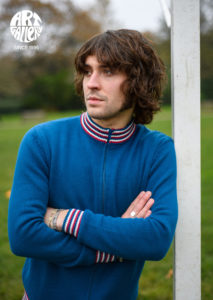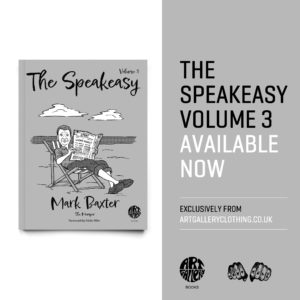
Of all the revolutionary ‘kitchen sink’ films of the late 1950s and the early 60s, Saturday Night , Sunday Morning made the biggest impression on me. It showcased a story I could identify with, one of working hard all week, to then let your hair down come Friday and the weekend. It certainly resonated with stories that I had heard from my mum and dad, from when they first entered the world of work, after leaving school. Overall, though, the most remarkable aspect to come from that film, was the acting of Albert Finney in the lead role of Arthur Seaton. Finney captured that post war cocky sneer coupled with spoonsful of attitude down to a T and he shone brightly off the screen. Some of the quotes from the film have gone down in folk lore.
‘Nine hundred and fifty-four, nine hundred and fifty bloody five. Another four more and that’s the lot for a Friday.’
‘Don’t let the bastards grind you down!’
‘What I want is a good time; the rest is all propaganda’
I soon made sure I caught up on as much of Finney’s subsequent acting work as soon as possible.
He was born in Salford in the May of 1936, the son of Alice and ‘Honest’ Albert, a local bookmaker. A sharp lad, he went to Salford Grammar School, before getting a scholarship into the Royal Academy of Dramatic Art to study acting aged 17. He had actually flunked his exams at school but played leading roles in 15 school plays and headteacher Eric Simm recommended the teenager to go to RADA.
“He’s the reason I am an actor,” Finney said simply.
His class at RADA included Tom Courtenay, and Peter O’Toole and sparks flew from all of them. After graduating, he joined the Royal Shakespeare Company . He was also offered a long-term contract by the Rank Organisation but walked away from that to work at the Birmingham Rep .
‘I was dead lucky, it was one of the leading reps in the country.’
He appeared on the BBC as early as 1956, after they filmed various plays that he performed in. He then made his debut on the London stage in 1958 in The Party directed by the great Charles Laughton. He also appeared in episodes on the TV show Emergency – Ward 10.
His first film role came in 1960 in The Entertainer playing the son of Laurence Olivier, directed by Tony Richardson. Then that same year, came Saturday Night , Sunday Morning, directed by Karel Reisz and produced by Richardson. It became a box office sensation. The film was based on the novel by Alan Sillitoe, and the scenes of extramarital sex and abortion, gave the British Board of Censors the vapours and earned it an X-certificate.
‘I remember, in terms of the sex, there were great discussions because the law then was you had to have one foot on the floor.’
In a busy year , he played Billy Liar on Stage and TV, before being chosen to play TE Lawrence in Lawrence of Arabia to be directed by David Lean. However not wanting to be tied down into the contract that came attached to the part by producer Sam Spiegel, he turned the role down and it went to Peter O’Toole instead.
In 1963, he starred in Tom Jones, screenplay by John Osbourne, which went on to win Academy Awards and earned Finney a $1 million from its profits.
‘Heroes, whatever high ideas we may have of them, are mortal and not divine. We are all as God made us, and many of us much worse.’
He then took a year off to sail around the world
‘People told me to cash in on my success while I was hot. I’d been acting for about eight years and had only had one vacation. Captain Cook had been a hero of mine when I was a kid, and I thought it would be exciting to go to some of the places in the Pacific where he’d been.’
When back he worked a season of plays at The Royal National Theatre and then starred in the film Two for the Road with Audrey Hepburn. His own Memorial production company made Charlie Bubbles in 1968, in which he not only starred but also directed. Co-star Liza Minnelli made her screen debut in the film. He played Scrooge in the 1970 musical of the same name and then in 1971, he appeared as Humphrey Bogart fixated bingo caller Eddie Ginley, in the marvellous Gumshoe. This was Northern Film Noir at its best and directed by then first timer Stephen Frears.
1974 saw him as Hercules Poirot in the Murder on the Orient Express earning him nominations for the Academy Award and Bafta for the lead role. One drawback he observed was that…
‘People really do think I am 300 pounds, have black hair and a French accent’
He then returned to the stage at the National Theatre for the next three years.
‘I felt that it needed commitment. When you’re making movies all the time, you stop breathing. You literally don’t breathe in the same way that you do when you’re playing the classics. When you have to deliver those long, complex speeches on stage, you can’t heave your shoulders after every sentence. The set of muscles required for that kind of acting need to be trained. I really wanted to try and do justice to my own potential in the parts. I didn’t want to be a movie actor just dropping in, doing Hamlet and taking off again. I wanted to feel part of the company.’
After satisfying that need, he returned to make six films in a row.
‘So that I could relax and get back into it again. In order to feel really assured and comfortable in front of a camera, you’ve got to do it for a while.’
The films he made during that period included Loophole (1981), Wolfen (1981) Looker (1981) Shoot the Moon (1982) of which Finney said ‘ I had to dig into myself. When you have to expose yourself and use your own vulnerability, you can get a little near the edge.’
Next up was Annie (1982), directed by John Huston.
‘I use a completely different side of myself as Oliver (Daddy) Warbucks. Annie is show biz; it’s open, simple and direct. It needs bold, primary colours. I don’t have to reveal the inner workings of the character, and that’s a relief.’
I’m a businessman. I love money, I love power, I love capitalism. I do not now and never will love children.
Then came his portrayal as ‘Sir’ in The Dresser (1983) directed by Peter Yates and a personal fave of your correspondent . He was simply a tour de force in the part and earned nominations for Academy Award, BAFTA and the Golden Globe.
There are thousands of children all over this beloved land of ours, scavenging the larders for something sweet. If only they came to me, I could tell them of the one person in England who has an inexhaustible supply of chocolate. It is I who have to carry her on, dead, as Cordelia.
He worked with Huston again when cast in the lead role of Under the Volcano (1984), which earned both men great acclaim, and included another Best Actor Oscar nomination for Finney.
1990 saw him in Miller’s Crossing. This was the start of another busy period in films with The Playboys (1992) Rich in Love (1993) The Browning Version (1994) and in the same year he played a gay bus conductor in early 1960s Dublin in A Man of No Importance. Then the Run of the Country (1995) for Peter Yates.
Next came two Dennis Potter plays Karaoke and Cold Lazarus (both 1996).
In the year 2000, he had his biggest success for a few years in Erin Brockovich alongside Julia Roberts directed by Steven Soderbergh. He played California lawyer Edward L. Masry and it earnt him his fifth and final Oscar nomination.
Ed – ‘In a law firm you may want to re-think your wardrobe a little.’
Erin – ‘Well as long as I have one ass instead of two, I’ll wear what I like if that’s all right with you. You might want to re-think those ties.’
Despite the now numerous nominations, he had never actually attended the Oscar ceremonies.
‘It seems silly to go over there and beg for an award. (The Oscars) we’re a long way to go for a party. Sitting there for 6 hours without a drink or a cigarette. It was a waste of time.’
2002 saw him as Winston Churchill in The Gathering Storm which won him a Bafta, a Emmy and a Golden Globe. A Good Year came in (2006). with The Bourne Ultimatum (2007), and his final film as Mr Kincade in the James Bond epic Skyfall (2012).
‘Sam Mendes has done a really great job, and I think Daniel Craig, the third time he’s played the part, really fits the jacket snugly and has a nice edge to him.’
Finney was married three times and had a son Simon with his first wife Jane Wenham. He then married Anouk Aimee and following their divorce, Penelope Delmage.
He admitted to two vices in life, wine and horseracing. He retired to Emsworth, near to Chichester Harbour.
He declined a CBE in 1980, and a knighthood in 2000, describing such honours as ‘perpetuating snobbery. It also helps keep us ‘quaint’, which I’m not a great fan of.’
Finney felt he never abandoned his working-class roots.
‘It’s part of you. It’s in the blood really.’
He revealed in 2011 , he had received treatment of cancer of the kidney and he died aged 82 in 2019 in the Royal Marsden hospital.
Finney’s hometown of Salford flew the flag at the Salford City Council offices, at half-mast as a mark of respect.
Daniel Craig – ‘I’m deeply saddened by the news of Albert Finney’s passing. The world has lost a giant. Wherever Albert is now, I hope there are horses and good company.’
Christopher Eccleston – ‘He was the only actor I knew of from Salford, so he was my inspiration. What was interesting about him was he could deliver very, very truthful performances, but he also went on stage and played classical roles, and of course he was trained by and understudied Laurence Olivier, so he could do it all.’
Paul Greengrass – I’ll miss him enormously. Albert was one of our greatest actors, significant not just for his talent but for the way he made British theatre and cinema reflect life as it was truly lived. Off screen he brought his infectious sense of humour to work every morning. He loved every aspect of the business and we in turn loved and revered him.’
The Mumper of SE5
Read The Mumper’s other weekly musings on ‘The Speakeasy’ blog page
ART GALLERY CLOTHING
Art Gallery Clothing presents Style ROE – Available now – Use Promo Code agc10spk for a 10% Discount
THE SPEAKEASY VOLUME 3 – AVAILABLE NOW
THE SPEAKEASY Volume Three by Mark Baxter (The Mumper)
Illustrations by Lewis Wharton
Foreword by Eddie Piller
Available to ORDER exclusively in the Art Gallery Clothing SHOP
JOIN US
Sign up to our newsletter and receive an exclusive promo code, latest news & Art Gallery Clothing offers.




